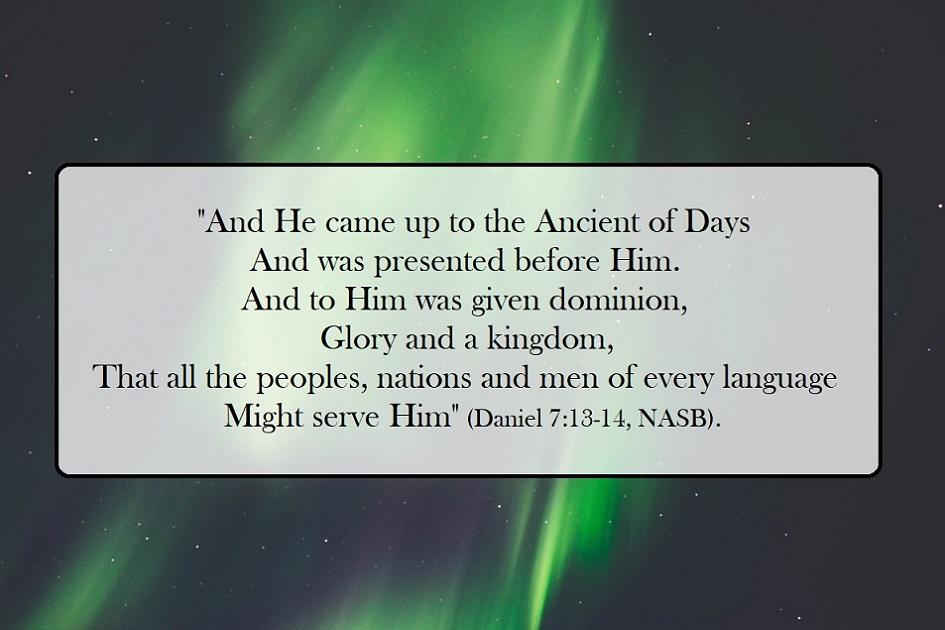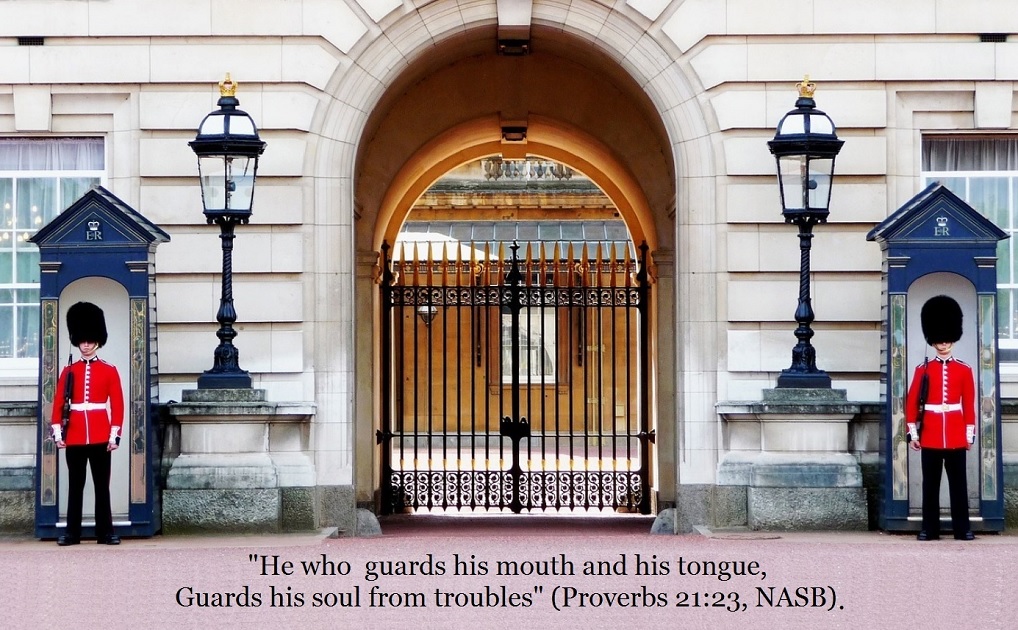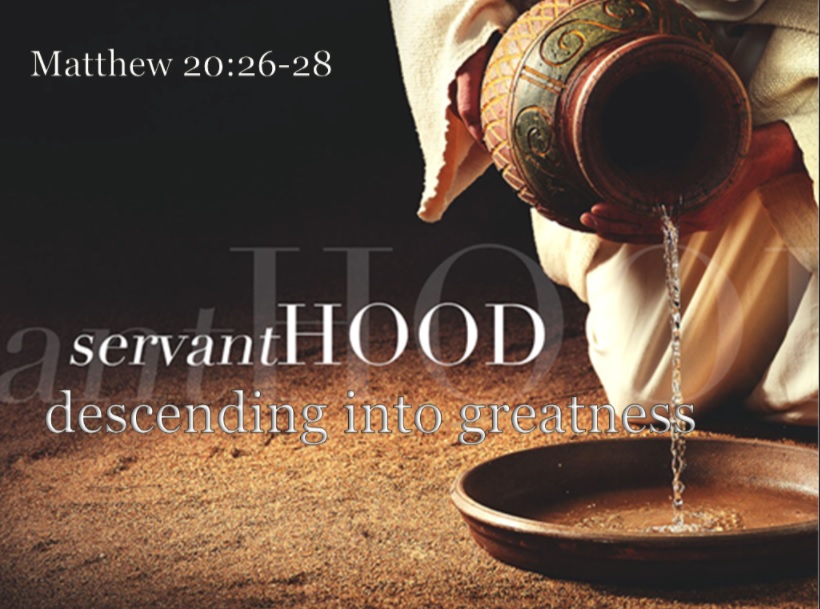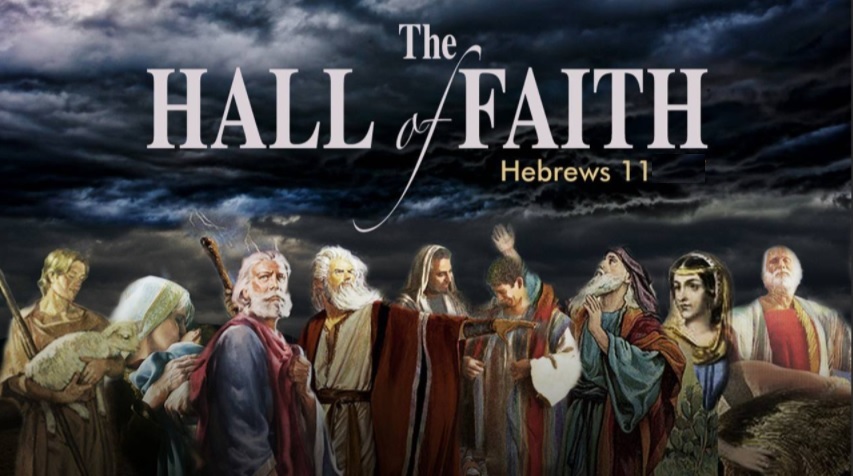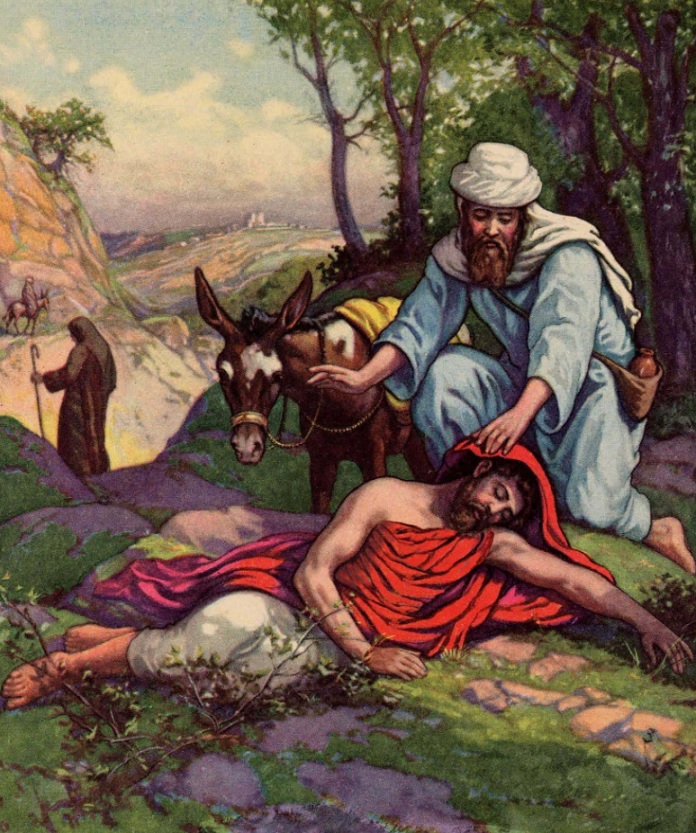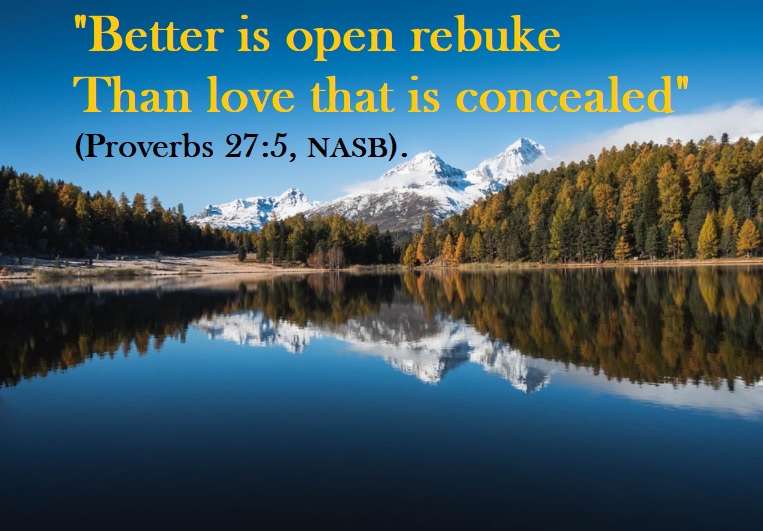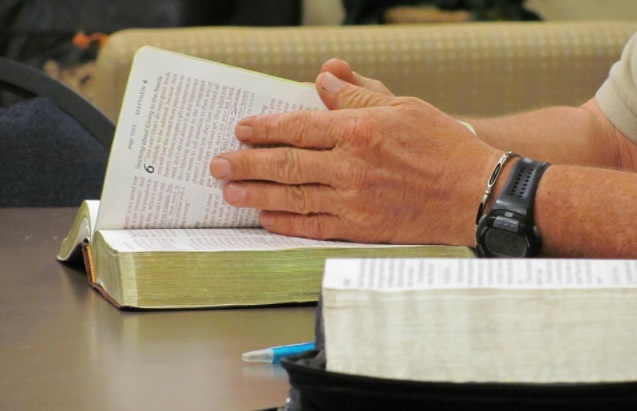“Go therefore and make disciples of all the nations…teaching them to observe all that I commanded you; and lo, I am with you always, even to the end of the age” (Matthew 28:19-20, NASB).
——————–
Contents:
1) Running from Opportunity (Mike Pittman)
2) Recommend This Church Twice A Week (Greg Gwin)
3) “If Any Man Wills . . .” (Dan S. Shipley)
4) Various Bible-Based Thoughts (improvised audio sermon, Tom Edwards)
5) News & Notes
——————–

-1-
Running from Opportunity
Mike Pittman
“But I will tarry in Ephesus until Pentecost. For a great and effective door has opened to me, and there are many adversaries” (1 Cor. 16:8-9).
The word “door” is frequently used for “opportunity.” Paul would not leave Ephesus because the opportunities for teaching the gospel were too great.
In addition to the door opened unto Paul in Ephesus, there were “many adversaries.” One might have expected Paul to say, “I must leave Ephesus because of my many adversaries.” Instead he said, “I must stay in Ephesus in spite of my many adversaries. The opportunities for accomplishing good are too great.”
I’m afraid that while Paul stayed, we often run from our opportunities. Paul allowed his opportunities for good to outweigh his adversaries, so he stayed put. We sometimes get discouraged by looking at our adversaries, so we flee opportunities to teach the gospel. We may never be subjected to mob violence for teaching the lost, as Paul was while in Ephesus (Acts 19:21-34), but we have our adversaries.
One of our adversaries is our lack of confidence in our ability to teach. It is not our ability to teach that is going to convert people. The gospel does that. Besides, we can surely teach others what we did in order to be saved. We can also bring the lost to some teacher in whom we do have confidence. If you do not have confidence in your own ability to teach the lost, what are you doing in order that you may improve your ability?
Another adversary is fear of rejection. Folks, the Lord was rejected! That didn’t keep Him from teaching as many as He could. When your teaching is rejected, don’t take it personally. Israel told their old prophet and judge, Samuel, that they wanted a king to rule over them. The Lord told Samuel, “Heed the voice of the people in all that they say to you: for they have not rejected you, but they have rejected Me, that I should not reign over them” (1 Sam. 8:7). When people despise the doctrine that you bring unto them, this is not a rejection of you but of the Lord. While you are fearing the adversary of rejection, consider this: how will our friends ever enjoy acceptance of the truth if no one offers it unto them?
A third adversary some face is not enough confidence in the gospel. When we say, “people just won’t listen to the truth anymore,” we need more confidence in people and in the gospel. Do you have reason to disbelieve Paul when he said, “For I am not ashamed of the gospel of Christ, for it is the power of God to salvation for everyone who believes, for the Jew first and also for the Greek” (Rom. 1:16)? The gospel works! It has worked, it is working, and it will always work when sown in good and honest hearts.
Are you praying for open doors? Are you looking for them? What would you do if you found one? Would you run away or stay?
— Via Articles of the Knollwood church of Christ, June 2020
——————–

-2-
Recommend This Church Twice A Week
Greg Gwin
Those who study “church growth” tell us that our best opportunity for increase arises out of every member recommending their own congregation to people they know or with whom they have contact. Such recommendations should be brief, to-the-point statements that are designed to appeal to the specific individual. Here are some examples:
To a new family that has recently moved into your neighborhood: “It’s great to meet you. If you ever think about looking for a new church here in our area, I’d like to recommend the Church of Christ. We’ve got some good families there, and we’ve got great classes for the kids. We’d love to have you visit.”
To someone you work with who may be going through a difficult time: “I know it’s tough right now, but in times like this I’ve always gained a lot of strength from the people at church. Why don’t you come to church with me this Sunday?”
To someone you meet at the grocery who gives you an “opening” by something that is said: “I attend the Church of Christ, and I really love it there. If there’s ever a time when you’re looking for a church, I’d like to recommend this one.”
See how easy it is! You can do this! We ALL can do this! And, it should be emphasized that we’re all obligated to do this. Revelation 22:17 says: “…the Spirit and the bride say, Come. And let him that heareth say, Come. And let him that is athirst come. And whosoever will, let him take the water of life freely.”
Let’s get busy recommending this church — simply telling folks to “come.” If each of us will make this recommendation twice each week, every one of us will have invited over 100 people in a year. Just do it!!!
— Via Roanridge Reader, Volume 36, Issue 23, Page 1
——————–

-3-
“If Any Man Wills …”
Dan S. Shipley
Rest assured that when Felix heard Paul “concerning the faith in Christ Jesus” (Acts 24:24), he heard exactly what he needed to hear and he heard it from one of the most competent and informed teachers of that time. In his case it was not a question, as when we teach, as to whether the most appropriate things were taught or whether enough was said or whether it was spoken in the proper spirit. And, judging from his response to what was heard concerning “righteousness, and self control, and the judgment to come” (v. 25), a terrified Felix got the point. But, regretfully, he dismisses God’s servant and, with him, God’s truth with the pitiful answer, “Go thy way for this time; and when I have a convenient season, I will call thee unto me (v. 25). So far as we know, that convenient season and salvation never came to Felix. Felix was lost! But why?
Certainly not because God wanted it that way! When the apostle Peter wrote that God is “not willing that any should perish” (2 Pet. 3:9), that surely included Felix. When Jesus said that “God so loved the world” (Jn. 3:16), that too included Felix. Felix was no less the object of God’s great love and concern than was the apostle Paul. Jesus teaches us that the soul of Felix was worth more than the whole world (Matt. 16:26). Then He proved it by dying on the cross for all men — for Felix. Through the Holy Spirit, men like Paul were divinely directed into all the truth (Jn. 16: 13) and were told to preach it unto all the world (Matt. 28:20) so that sinners like Felix may learn words whereby they might be saved (Ac. 11:14). Yet, in spite of God’s will, His love and His every provision; in spite of the efforts of an inspired apostle, Felix was lost! — and he was lost by choice! He chose to sow to flesh rather than the spirit; to serve self rather than God. And, even though God regrets such a decision, He nevertheless respects it. He allows man to do as he pleases, even when he chooses to spurn God’s grace and reject His salvation, as did Felix. This is, as some have termed it, God’s “permissive will.” Jn. 7:17 clearly shows the two wills involved in salvation: “If any man wills to do His will…” While it is true that environment and circumstances may and do influence one’s character, in the final analysis every man is what he chooses to be. As someone has well said, “Our character is but the stamp on our souls of the free choices of good and evil we have made through life.” Spiritually, Felix was what he chose to be — and so are we.
True, we don’t always like to take credit for what we may have become. Some blame God; others blame God’s people; still others find countless excuses with which to salve their consciences, but none of this changes anything. We are still just about what we want to be in our relationship with God. Facing up to this fact would help put things in perspective for a lot of the unfaithful. Felix and all like him will find that their choices are not without consequences. He who chooses to sow to the flesh will reap accordingly, Gal. 6:8. God’s sovereignty is vindicated in judgment. He wants you saved. The question is…
— Via Plain Talk, Vol. XVII, No. IV, page 3, June 1980
——————–
-4-
Various Bible-Based Thoughts
Tom Edwards
About 10 minutes prior to Sunday morning’s worship service, I wasn’t able to access my notes and slides for that morning’s sermon presentation that was all on my laptop. So, instead, I improvised the following sermon, which I later entitled, “Various Bible-Based Thoughts”:
https://thomastedwards.com/wordpress/Various_Bible-Based_Thoughts.mp3
——————–
-5-
News & Notes
Folks to be praying for:
Ginger Ann Montero’s procedure to receive a pacemaker went well.
Rick Cuthbertson’s new cancer specialist at Duke has been impressed with the treatment he has been receiving. His cancer is very slow, having taken 6 years to move to his lungs. And those tumors have not grown any bigger since they were last checked. Some have even decreased in size. So he will continue with the same treatment, plus begin an intravenous treatment that he will receive once every 3 weeks.
The test results for Danielle Bartlett showed that her high blood pressure over the years has caused her heart muscle to stiffen somewhat. This will, therefore, be treated with a change in her blood pressure medicine, and her doctor will continue to monitor her condition.
Jim Lively had a bad fall Monday that resulted in skin being sloughed from his arm and a bruise about 5 inches in diameter on his lower back.
Ronnie Davis has been having some terrible pain in his back again.
Deborah Medlock received a good report from her doctor concerning the breast cancer surgery she had a while back. She also began vocal therapy a couple weeks ago, due to the non-malignant nodules in her throat. And will probably be hearing this week about a device to eliminate pain that she has been having from her spine and which has also affected her walking.
Also: Nell Teague (cancer), Ritt Rittenhouse (healing from a stroke and has a degenerative disc in his neck), Doyle Rittenhouse (neck, shoulder, and arm pain), and Joyce Rittenhouse (pain in knee).
Also our shut-ins: A.J. & Pat Joyner, Jim Lively, and Shirley Davis.
——————–
The Steps That Lead to Eternal Salvation
1) Hear the gospel — for that is how faith comes (Rom. 10:17; John 20:30-31).
2) Believe in the deity of Jesus Christ (John 8:24; John 3:18).
3) Repent of sins. For every accountable person has sinned (Romans 3:23; Romans 3:10), which causes one to be spiritually dead (Ephesians 2:1) and separated from God (Isaiah 59:1-2; Romans 6:23). Therefore, repentance of sin is necessary (Luke 13:5; Acts 17:30). For whether the sin seems great or small, there will still be the same penalty for either (Matt. 12:36-37; 2 Cor. 5:10) — and even for a lie (Rev. 21:8).
4) Confess faith in Christ (Rom. 10:9-10; Acts 8:36-38).
5) Be baptized in water for the remission of sins (Mark 16:16; Acts 2:38; 22:16; 1 Pet. 3:21). This is the final step that puts one into Christ (Gal. 3:26-27). For from that baptism, one is then raised as a new creature (2 Cor. 5:17), having all sins forgiven and beginning a new life as a Christian (Rom. 6:3-4). For the one being baptized does so “through faith in the working of God” (Col. 2:12). In other words, believing that God will keep His word and forgive after one submits to these necessary steps. And now as a Christian, we then need to…
6) Continue in the faith by living for the Lord; for, if not, salvation can be lost (Matt. 24:13; Heb. 10:36-39; Rev. 2:10; 2 Pet. 2:20-22).
——————–
Tebeau Street
CHURCH OF CHRIST
1402 Tebeau Street, Waycross, GA 31501
We are currently meeting for only our Sunday 10 a.m. worship service each week, due to the coronavirus situation.
evangelist/editor: Tom Edwards (912) 281-9917
Tom@ThomasTEdwards.com
https://thomastedwards.com/go/all.htm/ (This is for the older version of the Gospel Observer website, but with bulletins going back to March 4, 1990)
